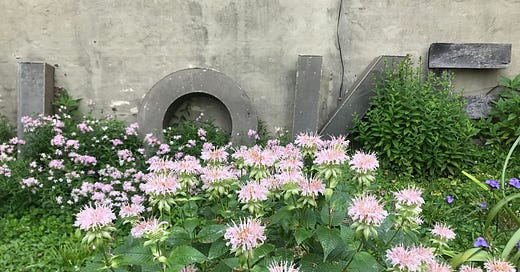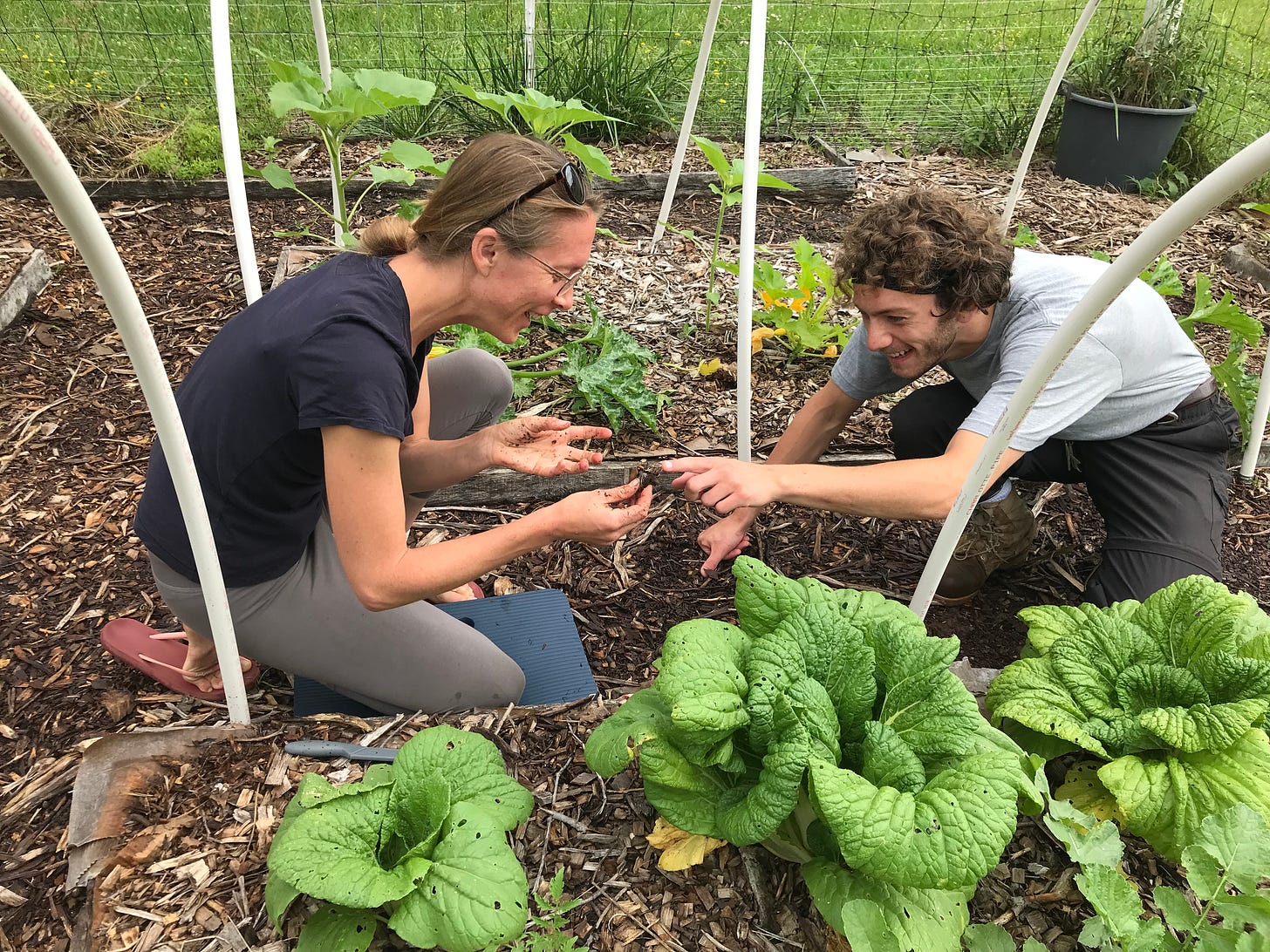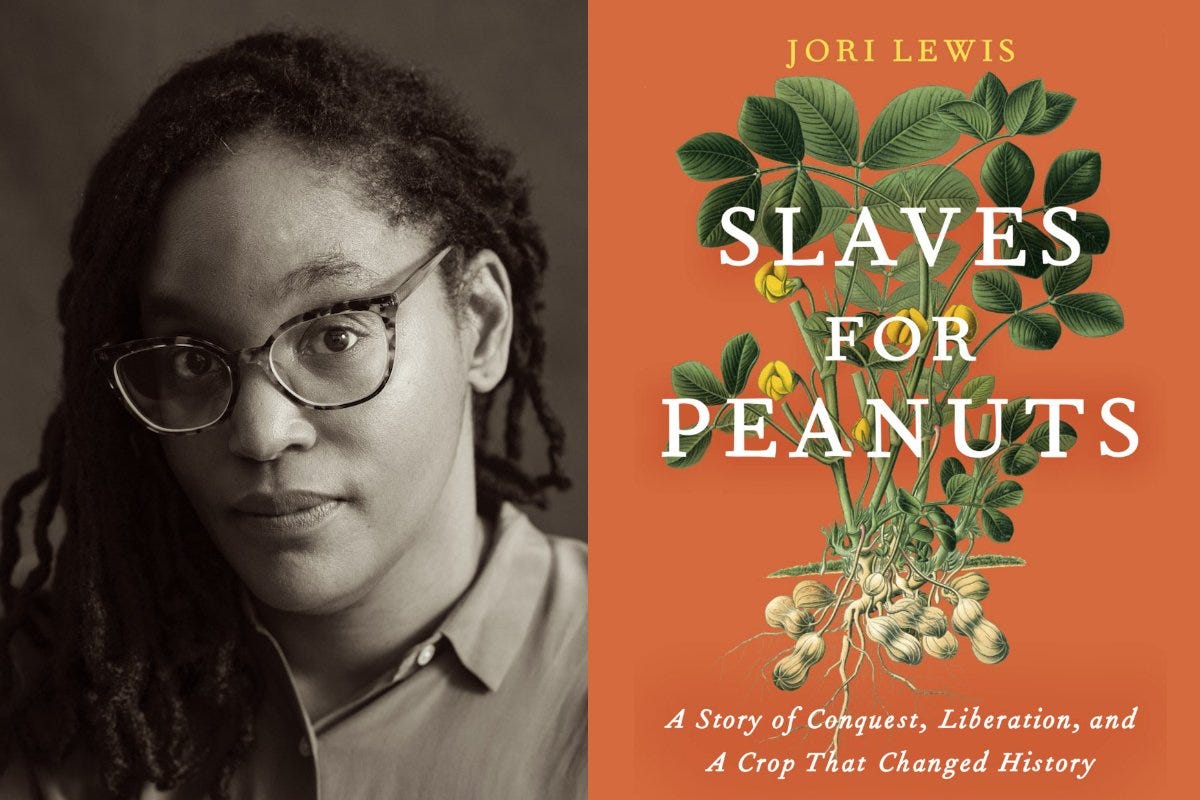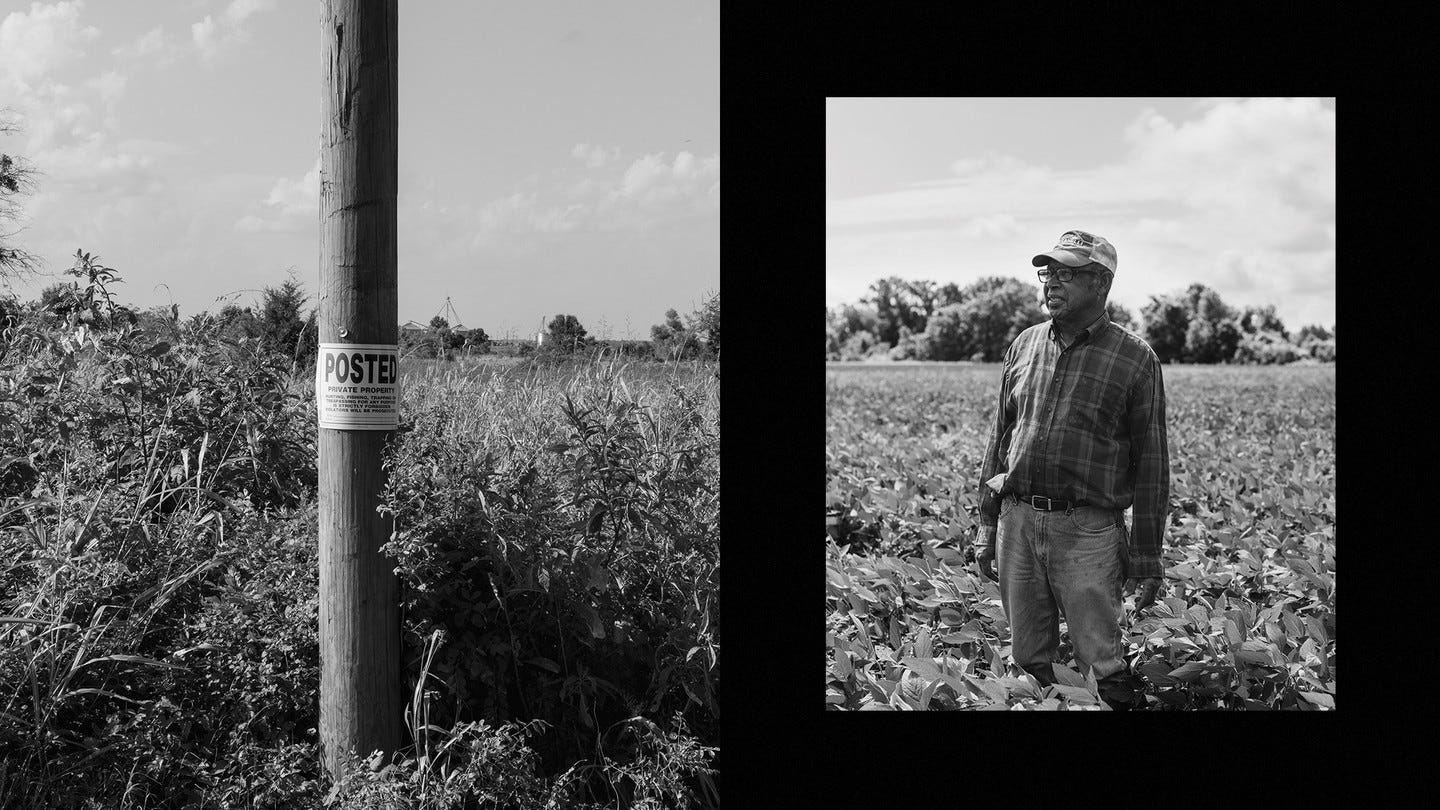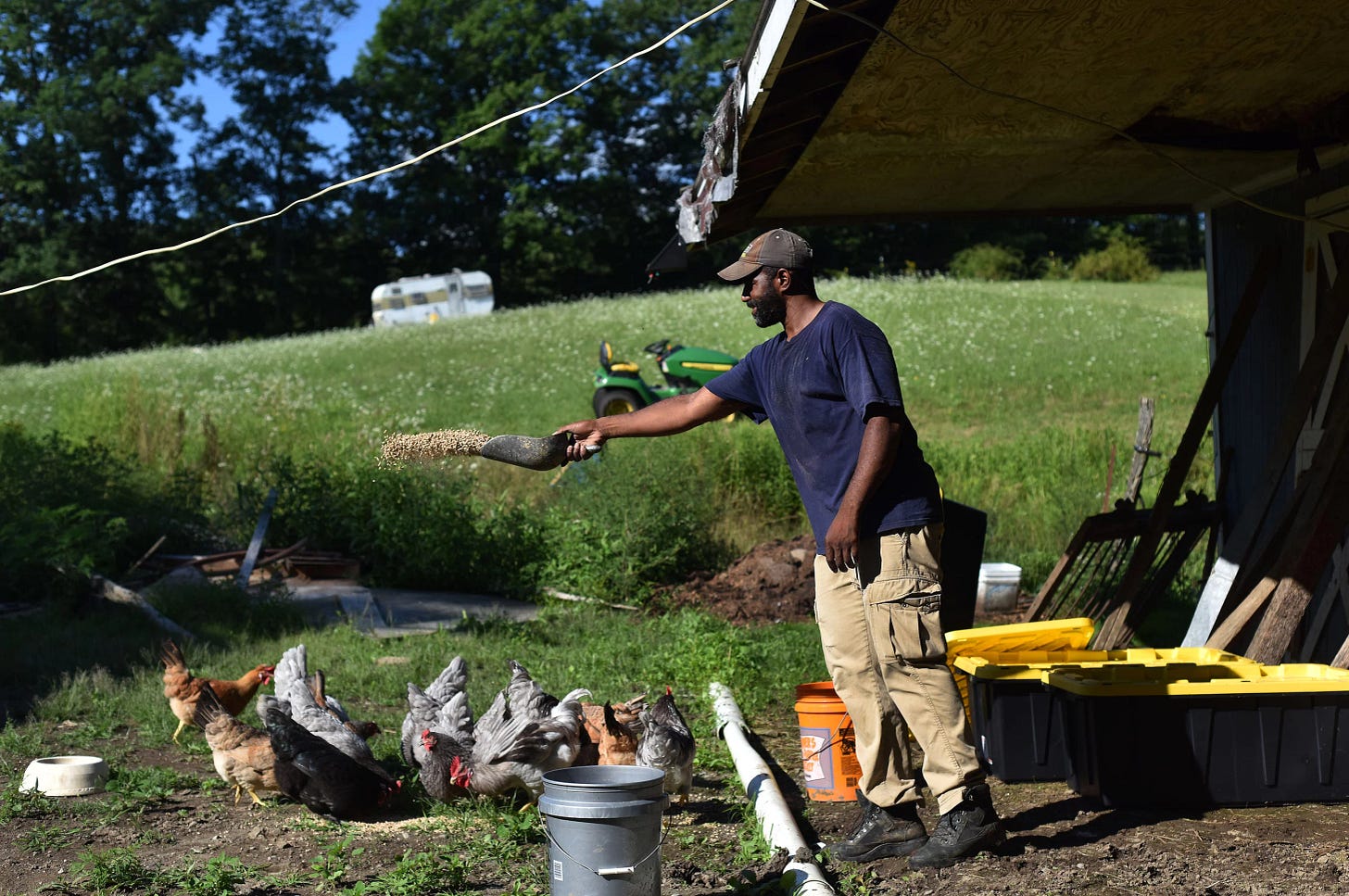The RēMind, No. 027: Uprooting Racism
Updates from Rē / Juneteenth Farming While Black / Understanding Mass Land Disposition / Decolonizing Conservation / Queering the Food System
TOMORROW IS JUNETEENTH. Juneteenth—also known as Juneteenth Independence Day, Freedom Day and Emancipation Day—commemorates the end of slavery in the United States. In honor of this holiday, we explore Black liberation and entrapment within the American food and farming system via recent news and literature.
We hope that this weekend we all take the opportunity to reflect on how far we have come—and, more importantly—how much further we have to go to ensure equity and uproot racism within our society and systems.
Keep scrolling for more.
Updates from Rē:
This week, Anthony helped put together an ‘Earth Machine’ composting bin (the black R2D2-looking unit above). The new bin is the latest kitchen-scrap-processing, possum-fending addition to our fleet of compost systems. We have about five different compost piles and processes used on our LOVE and peace gardens. The Earth Machine is designed for compact urban environments and we are excited to test it out and let you know what we think!
We also re-stocked the food pantry this week with extra water and provisions to support our community. Live in Fayetteville? Come by, take what you need, and give what you can!
RēMembering the Origins of Climate Change
According to educator and theologian Parker Palmer, "the opposite of to remember isn't to forget, it's to dis-member." Course facilitator Sara Jolena Walcott applies this framework to our fragmented, short-term understanding of climate change. In this new, three-part course, participants will trace the roots of climate change back 500 years to its roots in colonialism, racism, and theology. Along the way participants in the course will also delve into their own family histories to make sense of the deep history of how we have arrived at today's climate crisis and how we can instead choose to build a more regenerative future. Click here to learn more about this upcoming course! Stay tuned for more details! Dates to be announced.
RēRead
Farming While Black
https://www.soulfirefarm.org/media/farming-while-black/
Revolution is based on land. Land is the basis of all independence. Land is the basis of freedom, justice, and equality. — Malcolm X
Some of our most cherished sustainable farming practices have roots in African wisdom. Yet, discrimination and violence against African-American farmers has led to their decline from 14% of all growers in 1920 to less than 2 percent today, with a corresponding loss of over 14 million acres of land. Further, Black communities suffer disproportionately from illnesses related to lack of access to fresh food and healthy natural ecosystems. Soul Fire Farm (CHECK THEM OUT, THEY ARE AWESOME), cofounded by author, activist, and farmer Leah Penniman, is committed to ending racism and injustice in our food system. Through innovative programs such as the Black-Latinx Farmers Immersion, a sliding-scale farmshare CSA, and Youth Food Justice leadership training, Penniman is part of a global network of farmers working to increase farmland stewardship by people of color, restore Afro-indigenous farming practices, and end food apartheid.
Through her book, Farming While Black, Penniman extends that work by offering the first comprehensive manual for African-heritage people ready to reclaim their rightful place of dignified agency in the food system. This one-of-a-kind guide provides readers with a concise “how-to” for all aspects of small-scale farming
Click here to order the book and learn more about Penniman and the incredible work Soul Fire Farm is doing!
Slaves for Peanuts: A Story of Conquest, Liberation, and a Crop That Changed History
Jori Lewis’ stunning debut book, Slaves for Peanuts: A Story of Conquest, Liberation, and a Crop That Changed History, unearths the stories of African kingdoms and colonial settlements, showing how demand for peanut oil in Europe drove the expansion of the peanut trade in Senegal in the 19th century and ensured that slavery and indentured labor in West Africa would continue long after the Europeans had abolished it.
Civil Eats spoke with Lewis, whose book hit shelves this spring, about how peanuts became a tool for colonial expansion, how the colonial approach to peanut farming destroyed some of Senegal’s prime cropland, and why the nut is so popular in the U.S. Click here to read the fascinating interview.
RēNews
Juneteenth: The History of a “New” Holiday
By Derrick Bryson Taylor for The New York Times, June 8, 2022 | about 20 minutes
Juneteenth, an annual commemoration of the end of slavery in the United States after the Civil War, has been celebrated by African Americans since the late 1800s.
President Biden signed legislation last year that made Juneteenth, which falls on June 19, a federal holiday, after interest in the day was renewed during the summer of 2020 and the nationwide protests that followed the police killings of Black Americans including George Floyd and Breonna Taylor.
Click here to read a brief guide on the history of the celebration.
The Great Land Robbery
By Vann R. Newkirk II for The Atlantic, 2019 | about 30 minutes
The consequences of dispossession had long been predicted… Mass dispossession should be seen as mass extraction. Even as the U.S. government invested billions in white farmers, it continued to extract wealth from black farmers in the Delta. Each black farmer who left the region, from Reconstruction onward, represented a tiny withdrawal from one side of a cosmic balance sheet and a deposit on the other side. This dynamic would only continue, in other ways and other places, as the Great Migration brought black families to northern cities.
This important feature tells the story of one multi-generational family of black farmers to illustrate how racist policy and actions forced 1 million black families off of their land over decades through legal and illegal means. We read this back when it was published three years ago and still think about this article. Click here to read.
Make Farmers Black Again: African Americans Fight Discrimination To Own Farmland
By Jillian Forstadt for NPR, August 25, 2020 | about 5 minutes5:03 AM ET
At the start of the 20th century, one in seven farmers in the United States was Black. In the decades that followed, however, Black Americans were dispossessed of an estimated 13 million acres of land. Many descendants of Black farmers moved north to seek jobs in other industries, removed from familial agricultural backgrounds. Now, nearly 100 years later, people of color are leading a resurgence of interest in farming in the Northeast, and yet for these farmers the barriers to starting a farm remain high. Between lending discrimination and rising costs, many obstacles stand in the way of Black Americans looking to own farmland.
Click here to read about the systemic structures that lead to land dispossession and the fight to make farmers Black again.
Bill to Counteract the Decline of the Black Farmer
By Amanda Pérez Pintado for The Counter, February 22, 2022 | about 5 minutes
The Black Farmer Restoration Program Act aims to support producers by, in part, granting Black producers farmland… The bill calls for the Illinois Department of Agriculture to create a fund to purchase farmland and offer land grants of up to 100 acres to eligible individuals, prioritizing “socially disadvantaged farmers” and applicants “with a family history of land dispossession.” It would also establish a Farm Conservation Corps to provide training to Illinois residents between 18 and 29 years of age from socially disadvantaged groups to pursue careers in agriculture.
Click here to continue reading about this potential legislature.
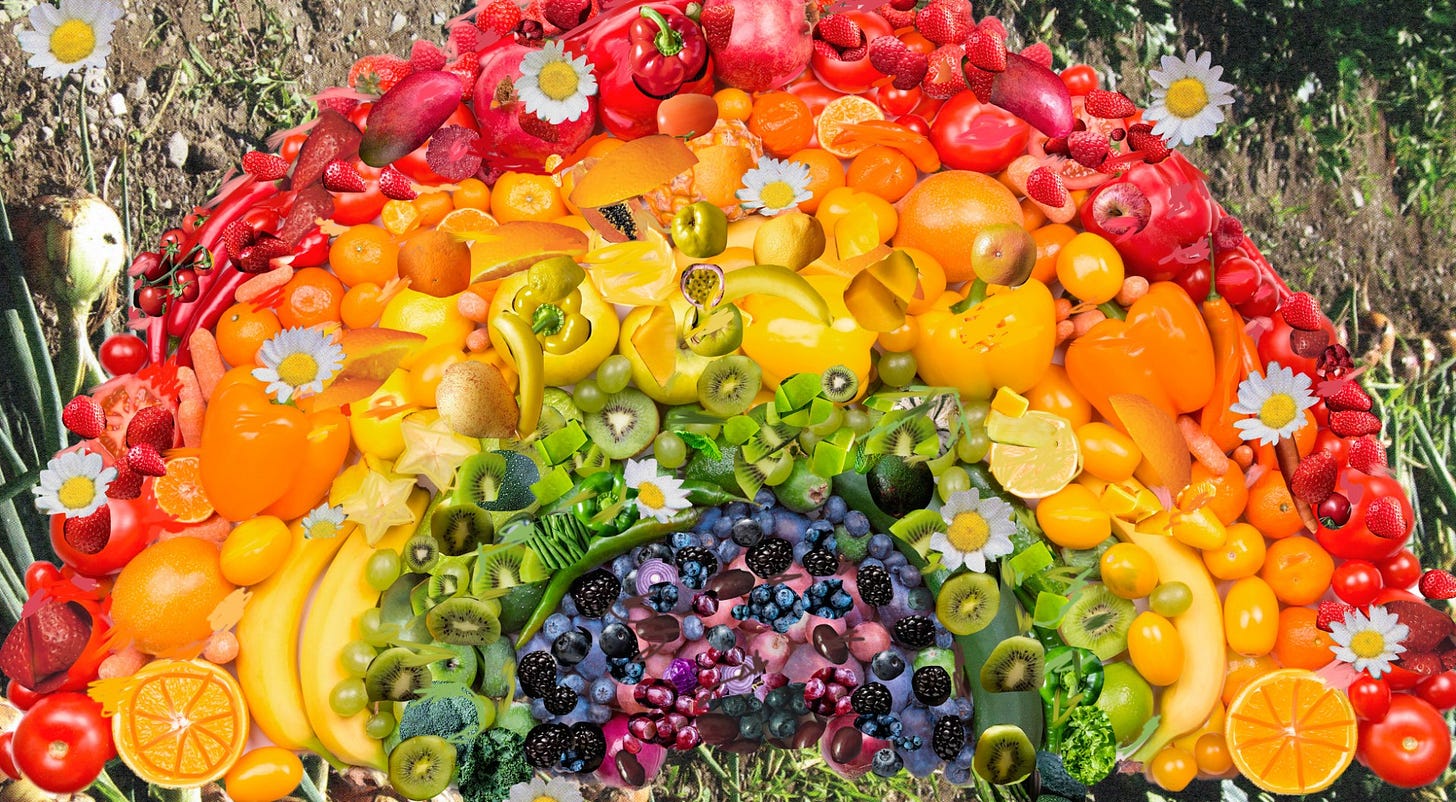
Queering the Food System
By Daphne Chouliaraki Milner for Atmos, June 16, 2022 | about 10 minutes
Historically, farming practices in the West have been shaped by oppressive systems—heteronormative patriarchy, white supremacy, capitalism—that have prioritized profit and volume over people and planet. Queer farmers, especially queer farmers of color, are met with high rates of homophobia, transphobia, racism, and sexism as they navigate farmland.
A new generation of LGBTQIA+ farmers are tending the land through a lens of radical empathy. Dismantling hierarchies can be achieved not only through safe spaces and community-building, but also through the techniques that are used when farming produce. Click here to learn more about how queer farmers are experimenting with more just and inclusive ways of tending to the land.

How to Decolonize Conservation
By Erica Gies for Hakai Magazine, April 25, 2022 | about 6 minutes
Indigenous peoples have been managing landscapes more or less sustainably for thousands of years. In fact, on the 25 percent of lands worldwide managed or owned by Indigenous peoples, ecosystems are healthier and biodiversity is even higher than in protected conservation areas. In recognition of that fact, negotiators at the United Nations Convention on Biological Diversity focused on Indigenous land rights as a key strategy to reverse the extinction crisis. Indigenous peoples’ successes stem, in part, from the fact that many Indigenous worldviews recognize that species do not exist in isolation; they are part of a natural system.
Click here to read about how Indigenous researchers are unpacking what a decolonized approach to environmental protection should look like.
As always, we at Rē are grateful for your attention and support. If you liked this newsletter, consider donating at https://regenerativeschool.org/redonate/
Thank you and see you soon!

